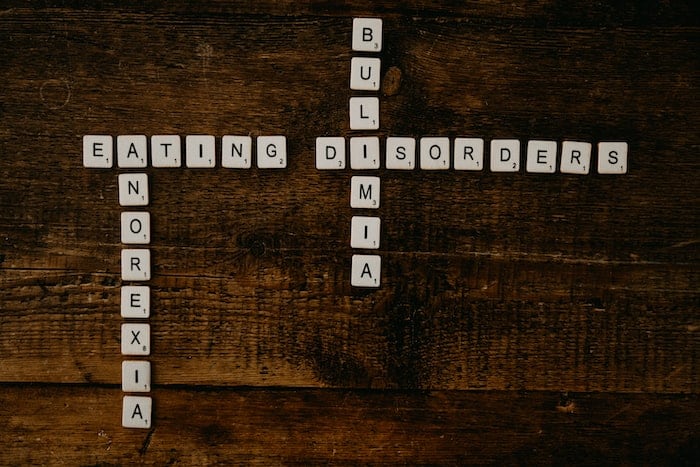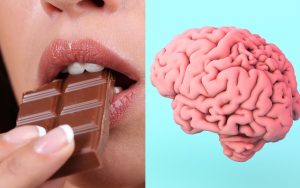Anorexia can make a person extremely malnourished and thin. This is why if you know someone who is anorexic, it is only natural that you want to extend help. If you have a family member or a friend who refuses to eat and you suspect that the person may have anorexia, it is important to talk to them about your concerns and urge them to seek help from a professional.

After this, you can help your family member or friend during recovery. A significant part of this process is to model a healthy relationship with food and support them every time they try to eat. At this point, you might be wondering what anorexics eat in the first place.
How Does Chocolate Play a Role in People with Anorexia?
Chocolate is often thought of as a guilty pleasure. But for people with anorexia, chocolate can be a lifeline.
For people with anorexia, the act of eating chocolate can be a way to feel in control. Anorexia is an eating disorder characterized by restrictive eating and an intense fear of gaining weight. People with anorexia often see food as the enemy, so being able to eat something—even if it’s not “healthy”—can be a way to feel like you’re in control of your body.
Chocolate can also be a source of much-needed calories and nutrients. People with anorexia often suffer from malnutrition due to their restricted diets. Eating chocolate can help replenish some of those lost nutrients and calories.
How Chocolate Helped Annie Windley?
Annie Windley started starving herself at the young age of 15. After she forced her body to survive every day for five years on a measly diet of jam and a slice of toast, she tipped the scales at only 28.5 kilos. The teen girl from Derbyshire, UK had been repeatedly brought to the hospital as she almost brushed death.

Scared to gain weight, there was nothing that enticed Annie’s appetite. Her condition meant she couldn’t be near any food. Her anorexia also worsened to the point that she screamed and banged her head on the wall, not wanting to be around food.
The mere sight of a plate of pasta in front of her made Annie shake physically, become agitated, and swear. As a schoolgirl, she was already at the peak of her illness, with a daily goal of wanting to be smaller every day. For this, she was even willing to lower her academic ability, endure blackouts, and even risk heart failure. It worried her schoolteachers that they had to step in.
After losing so much weight, her nurses became concerned, and she was removed from the school teams since she no longer has any physical weight to lose. She even said that she looked scary.
Although Annie graduated from high school despite her feeble state, the future started looking bleak for her until she found out that her size doesn’t change even if she treats herself to one square of chocolate.
It was over the top to assume that she would gain the weight right away if she ate one part of chocolate but that was when Annie realized that eating was not really as scary as she thought it would be.
Little by little, the enjoyment of eating a sweet treat like chocolate helped her regain her love of food, reducing her worries about weight.
After over two years since her commitment to fixing her relationship with food, her road to recovery is something Annie shares with her thousands of followers on Instagram.

How to Encourage Anorexics to Eat
Now that it seems that anorexics do eat chocolate, as proven by Annie’s story, it is time to learn some tips on how to encourage anorexics to eat.
Talk About Your Concerns
Make sure you plan the discussion when the person is in a good mood and relaxed to improve the possibility that the conversation is going to go well. Never try talking to the person when you know that they are preoccupied or stressed.
See to it that you also express your worries and concerns directly and honestly. Don’t just hint at them. Instead, say exactly what they really are, or else, the person will just ignore your hints or won’t get what you mean.
You should also invite the person to discuss the reasons why they avoid food and express their feelings. Listen intently to what the person shares with you. Be loving and accepting as you talk about your concerns with the person. Never shame, blame, or judge when sharing your concerns. Let the person know that you accept and love them regardless and you simply wish to help them.
Foster a Healthier Relationship with Food
If you are the friend, sibling, or parent of a person with anorexia, it is important that you model good behavior when it comes to your body image and food. Never skip meals, don’t try excessive dieting, and avoid making self-deprecating remarks regarding your appearance.
Don’t force the anorexic person to eat as it will probably worsen things instead. Don’t forget that anorexia is not just about choosing not to eat or disliking food altogether. Instead, it is a quite complex mental health concern.
Also, you need to keep in mind that people with anorexia have a hard time preparing their food and choosing what to eat. The experience of preparing food will probably be stressful for them.
To make things easier for them, you can offer to take over the tasks of preparing food or even prepping their plate for them. Most importantly, don’t forget to remind the person that you support and love them before every meal.

Suggest Professional Help
It is also critical for your family member or friend to get a doctor’s diagnosis. It will help the person see that the problem is already starting to affect their overall health. The doctor will be able to connect them with the necessary resources required to help them get better. It is never recommended to force them to see a doctor. All you have to do is offer gentle encouragement.
Help the person look for a therapist who specializes in the treatment of eating disorders. Anorexia is a mental health issue so your family member or friend should work with a therapist to identify the root of their condition. You can also research some in-patient treatment centers that they might find appealing.
Do anorexics eat chocolate? Yes, some anorexics might be enticed to get a bite of chocolates. But if you know someone with the condition, there are things you can do to encourage them to eat again so they can regain their overall health.








